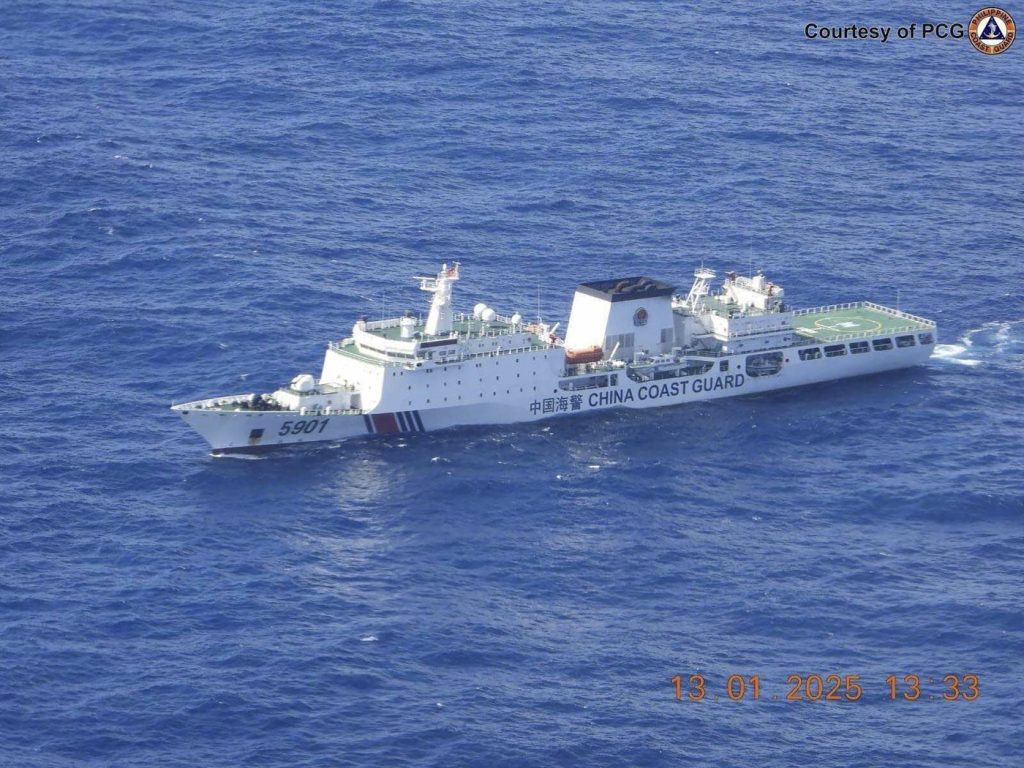MANILA, Philippines (AP) – A Philippine security official expressed serious concerns on Tuesday regarding China's increasing assertiveness in the disputed South China Sea, stating that the nation is being "pushed to the wall." This remarks came amid a heightened presence of a large Chinese coast guard vessel near Scarborough Shoal, which lies within the Philippines' exclusive economic zone (EEZ). The official warned that "all options are on the table" for Manila's response, including the potential of filing new international lawsuits.
Recently, the Chinese coast guard ship was reported to have patrolled the Scarborough Shoal area and then approached as close as 77 nautical miles (143 kilometers) from the northwestern coast of the Philippines. Jonathan Malaya, assistant director-general of the National Security Council, highlighted the unacceptable nature of this presence, insisting that the Chinese vessel should be withdrawn immediately. He expressed, "You’re pushing us to the wall," asserting that the Philippines will not succumb to intimidation tactics from China.
In this tense scenario, two Philippine coast guard ships, supported by surveillance aircraft, have repeatedly ordered the Chinese ship to exit the Philippine EEZ, which extends 200 nautical miles (370 kilometers) from the country's shores. Commodore Jay Tarriela from the Philippine coast guard emphasized that their actions are intended to challenge the illegal presence of the Chinese vessel, ensuring the international community is aware of their position against China’s attempts to normalize what they consider illegal deployments.
There was no immediate response from Chinese officials, who have historically accused the Philippines, as well as other claimant nations like Vietnam and Malaysia, of intruding into what they claim are "undisputed" Chinese waters. Under the leadership of President Ferdinand Marcos Jr., who assumed office in mid-2022, the Philippines has taken a robust stance in safeguarding its territorial rights in the strategically significant South China Sea, which is crucial for global trade. This has often led to confrontations between Philippine forces and China’s coast guard, navy, and suspected militia boats, raising fears of a broader conflict that could involve the United States, a long-time treaty ally of the Philippines.
The ongoing situation has driven the Philippines to seek enhanced security partnerships with other countries, including Japan, with whom it signed a significant agreement for joint combat training last July. This pact, pending ratification by lawmakers, represents Japan's first military agreement in Asia.
Since 2012, following a tense standoff, China has maintained a heavy presence around Scarborough Shoal. The Philippines sought international arbitration in 2013, which culminated in a landmark ruling in 2016 that invalidated China's extensive claims in the area based on the United Nations Convention on the Law of the Sea (UNCLOS). Despite this ruling, China has continued to reject the decision and has increased its assertiveness in the region.
Jonathan Malaya raised the possibility of another legal case against China, noting that the increasing proximity of Chinese vessels in Philippine waters elevates tensions significantly. He remarked, "The closer the monster ship is in Philippine waters, the more it makes tensions high and the more that the Philippine government contemplates things it was not contemplating before." Meanwhile, China has cautioned the Philippines against pursuing further legal actions at international forums and prefers bilateral negotiations, which are often seen as advantageous for China due to its considerable leverage.
To mitigate the risk of escalation, both nations have engaged in discussions regarding their territorial disputes under a bilateral consultation mechanism, with the next round of talks scheduled to take place in China.










